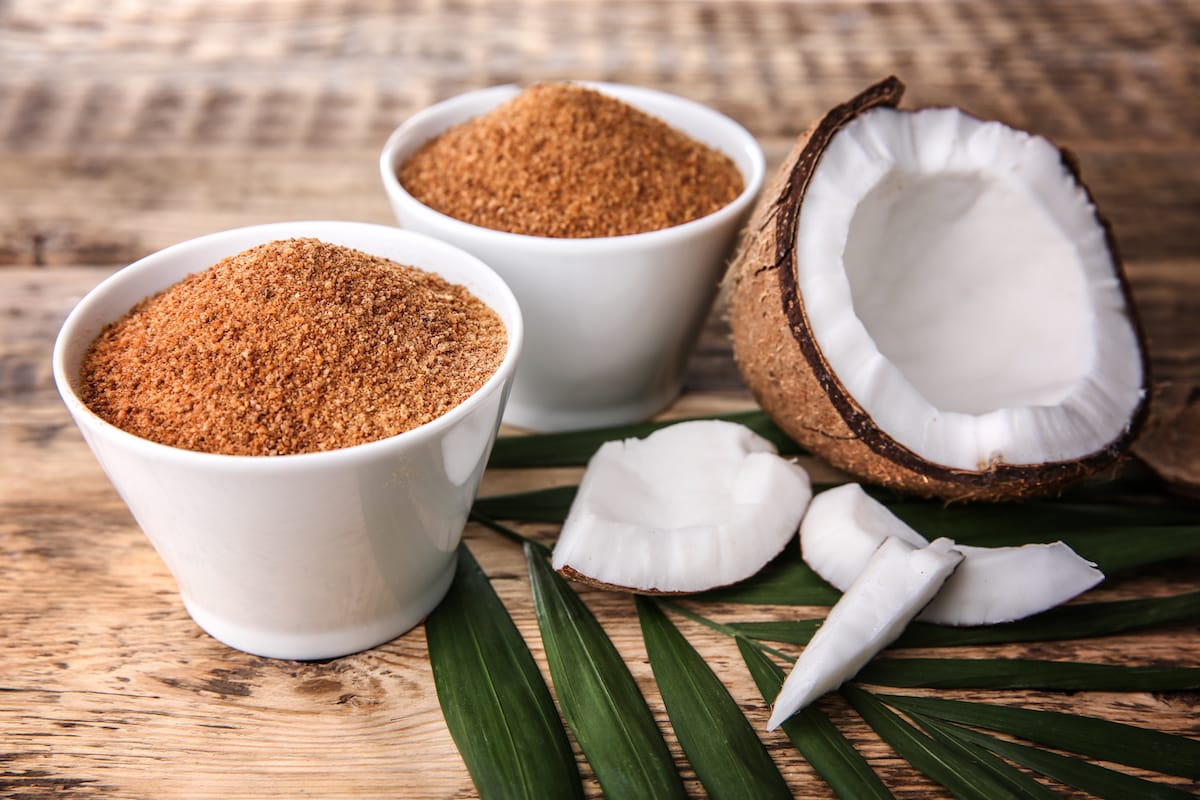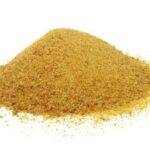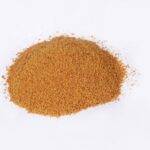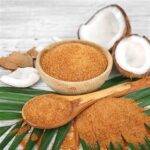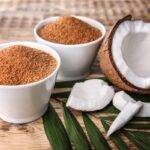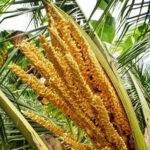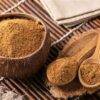Multi Sari Pangan produce and supply coconut sugar with several kinds of the coconut sugar product. The Nutrient Content of Coconut sugar or coconut sap sugar is very beneficial for industry and health. You can contact Multi Sari Pangan for your needs of this recommended product to change the unnatural sweeteners such as white sugar. We are ready to give you our best products.
Coconut sugar is a natural sweetener derived from the sap of coconut palm trees. This product ; Coconut sugar is called with various names such as coconut palm sugar, coco sugar, coconut blossom sugar, coconut sap sugar, coconut sweetener, coconut flower sugar. Our company Multi Sari Pangan prepare this good product for local and export market for local, national and multinational companies.
Coconut sugar or that is also called as coconut blossom sugar, coco sugar, is known for its low glycemic index and higher nutrient content compared to regular table sugar and is considered to be a healthier alternative to refined sugar.
Below is an information about some of nutrient content of coconut sugar that is made coconut sugar is good for us.
- Mineral.
- Vitamins
- Antioxidant
- Fiber
- Inulin
- Amino Acid
- Carbohydrates
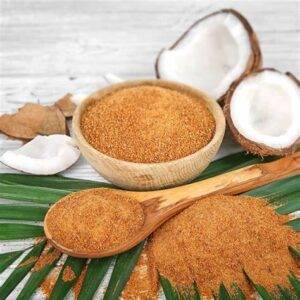
Granulated coconut sugar
The Detail information of some nutrients above are as below :
Nutrient Content of coconut sugar, coconut sap sugar
What that make coconut sugar is marketed with increasing quantity every year is its low Glycemic index and its nutrient content. Here we inform you nutrient content of coconut sugar or coconut sap sugar, coco sugar :
1. Minerals: One of nutrient content of coconut sugar is Minerals. Coconut sugar contains various minerals such as iron, zinc, calcium, potassium, and magnesium. These minerals are essential for maintaining overall health and supporting various bodily functions.
The mineral content of coconut sugar can vary slightly depending on the brand and processing methods, but it generally contains small amounts of minerals such as potassium, magnesium, zinc, iron, and calcium. However, it is important to note that the mineral content of coconut sugar is relatively low compared to other food sources, and it should not be relied upon as a significant source of these nutrients.
The exact mineral content of coconut sugar can vary, but here are some approximate values for the minerals commonly found in coconut sugar:
– Potassium: Coconut sugar typically contains around 300-400 milligrams of potassium per 100 grams. Potassium is an essential mineral that plays a role in maintaining proper heart and muscle function, as well as regulating blood pressure.
– Magnesium: Coconut sugar usually contains around 30-40 milligrams of magnesium per 100 grams. Magnesium is important for bone health, energy production, and nerve function.
– Zinc: Coconut sugar typically contains around 1-2 milligrams of zinc per 100 grams. Zinc is involved in immune function, wound healing, and DNA synthesis.
– Iron: Coconut sugar usually contains around 1-2 milligrams of iron per 100 grams. Iron is necessary for the production of red blood cells and oxygen transport in the body.
– Calcium: Coconut sugar typically contains around 10-20 milligrams of calcium per 100 grams. Calcium is important for bone health, muscle function, and nerve transmission.
2. Vitamins: Vitamin is another content of coconut sugar. Coconut sugar contains small amounts of B vitamins, including thiamin (B1), riboflavin (B2), and niacin (B3). These vitamins play a crucial role in energy production, metabolism, and maintaining healthy skin, hair, and nails.
The vitamin content of coconut sugar can vary slightly depending on the brand and processing methods, but generally, it contains small amounts of vitamins such as vitamin C, vitamin B1 (thiamine), vitamin B2 (riboflavin), and vitamin B3 (niacin). However, the exact amounts of these vitamins are minimal and may not significantly contribute to your daily recommended intake.
It’s important to note that coconut sugar offer some trace amounts of vitamins, it should not be relied upon as a significant source of nutrients of vitamins for your need.
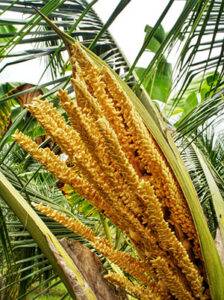
Coconut sap of coconut palm
3. Antioxidants: The other nutrient content of coconut sugar is Antioxidant. Coconut sugar contains antioxidants, including polyphenols and flavonoids. These compounds help protect the body against oxidative stress and reduce the risk of chronic diseases.
Coconut sugar is known to contain several antioxidants, although the exact content may vary depending on factors such as the processing method and the source of the coconut sugar.
One of the main antioxidants found in coconut sugar is called phenolic compounds. These compounds have been shown to have various health benefits, including reducing inflammation and protecting against chronic diseases such as heart disease and cancer.
Coconut sugar also contains other antioxidants such as flavonoids and anthocyanidins, which are known for their antioxidant properties. These antioxidants help to neutralize harmful free radicals in the body, which can cause oxidative stress and damage to cells.
While Coconut sugar or coconut sap sugar is a health products that has antioxidant, It is always recommended to have a balanced diet that includes a variety of nutrient-rich foods to ensure optimal health.
4. Fiber: Fiber is also a nutrient content of coconut sugar. Coconut sugar contains a small amount of dietary fiber. Fiber is important for digestive health, regulating blood sugar levels, and promoting satiety.
Coconut Sugar does contain some fiber, although the exact amount can vary depending on the brand and processing methods. On average, coconut sugar contains about 3-9 grams of fiber per 100 grams.
However, it is important to note that coconut sugar should not be relied upon as a significant source of dietary fiber. You also need other foods that are that contain fiber for your health.
5. Inulin: Coconut sugar contains a prebiotic fiber called inulin. Inulin acts as a food source for beneficial gut bacteria, promoting a healthy gut microbiome and supporting overall digestive health.
Coconut sugar is generally known to contain a small amount of inulin. Inulin is a type of dietary fiber that acts as a prebiotic, promoting the growth of beneficial bacteria in the gut. While coconut sugar may not be a significant source of inulin compared to other foods , it can still contribute to overall dietary fiber intake.
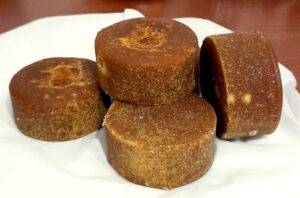
Block coconut sugar
6. Amino : The amino acid profile of coconut sugar is not well-documented, but it is believed to contain small amounts of amino acids.
7. Protein : Coconut Sugar contains a small amount of proteins
8. Carbohydrates : Coconut sugar is primarily composed of carbohydrates mainly sucrose (around 70-80%), which is a disaccharide made up of glucose and fructose. This is a source of energy for our body.
While Coconut sugar or coconut palm sugar is good to health because of the nutrients content and the low glycemic index, We still must need others food that contains nutrients to meet our nutritional needs for optimal health. This Product coconut sugar must be consumed with moderation and it is always recommended to have a balanced diet that includes a variety of nutrient-rich foods to ensure optimal health
Your company kindly requested to contact our company at soon if you need this product , coconut sugar or coconut sap sugar.
Contact Multi Sari Pangan for your company need of product coconut sugar, coconut sap sugar
Need coconut sugar for your company? It is the right time for you to contact our company and make a cooperation with us. We supply the qualified coconut sugar with several kinds coconut sugar both natural and organic, light or dark, granulated, crystallized or powdered, liquid or block. We guarantee the quality of our coconut sugar is stay safe without change from our place until to your place.
You can contact us here or directly click “Chat With Us” as our service in this website. Coconut sugar which is a high nutrient content is recommended for you to change the common unnatural sweeteners such as white sugar.
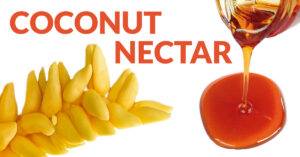
Coconut nectar sugar

